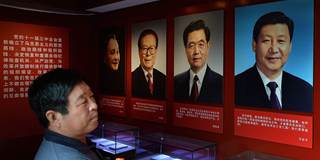The conventional wisdom among social scientists is that the demands of advanced economies and growing middle classes can be met only through greater political freedoms and competition. By doubling down on authoritarian single-party rule, China is now testing that proposition.
BEIJING – Forty years ago this month, China’s leaders set the country on a path of reform that has produced the most dramatic economic transformation in history. Mao Zedong had died two years earlier, in 1976, and the newly rehabilitated Deng Xiaoping succeeded in stamping his vision of economic development and modernization on the Third Plenary Session of the Eleventh Central Committee held in December 1978. In the four decades since, China has transformed itself into an economic powerhouse, portending an equally momentous makeover of the global economy and geopolitics.

BEIJING – Forty years ago this month, China’s leaders set the country on a path of reform that has produced the most dramatic economic transformation in history. Mao Zedong had died two years earlier, in 1976, and the newly rehabilitated Deng Xiaoping succeeded in stamping his vision of economic development and modernization on the Third Plenary Session of the Eleventh Central Committee held in December 1978. In the four decades since, China has transformed itself into an economic powerhouse, portending an equally momentous makeover of the global economy and geopolitics.